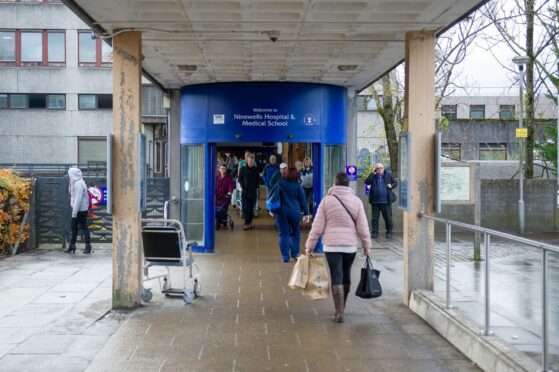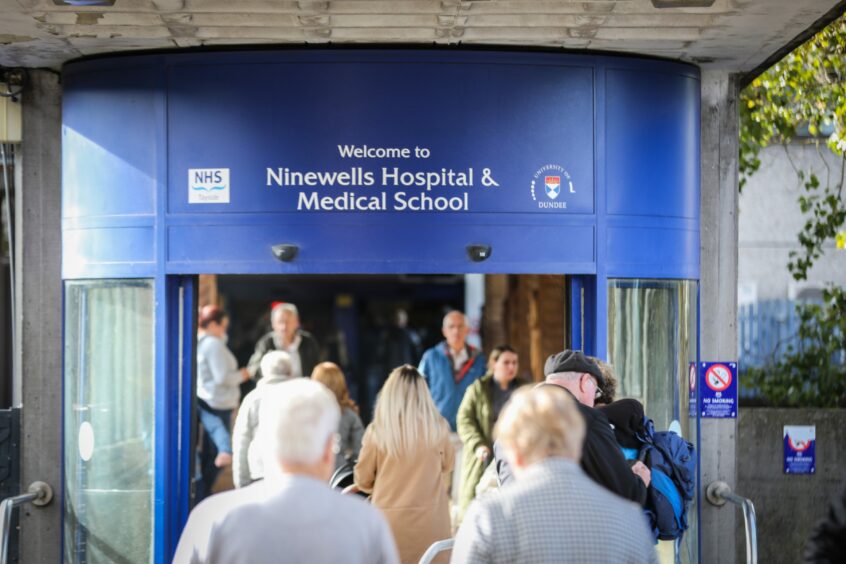NHS Tayside is facing a £40 million deficit due to inflation costs and agency staff.
In the period between April and July, the health service reported a £19.5 million overspend, with a predicted £40 million deficit by the end of the current financial year.
The service is currently staring down a cumulative three year deficit of £147.8 million.
The deficit was revealed in a report which went before the NHS Tayside board on Thursday.
Rising inflation costs and agency staff have been highlighted as some of the key issues.
However the Scottish Government has set out a savings target of £30 million for the financial year to try and alleviate some of the financial pressures and help balance the books.
But during Thursday’s meeting some members of the board were critical of the plan, stressing that services can’t be performed to a high standard without coming at a cost.
Jenny Alexander, employee director and non executive member of the NHS Tayside board said: “A lot of our costs are going out because we are one of the top boards [in terms of] performance and you can only do that at a cost.
“So you really need to look at do we perform to the targets that the Scottish Government are setting or do we balance the books?”
The crippling financial crisis has also played a significant role in the health body’s overspend, with skyrocketing rent and energy costs also hitting health services.
Cost of agency staff continues to be issue
Paying agency staff to fill gaps in employment continues to be a problem for NHS Tayside but efforts are being made to reduce the reliance and money spent on this resource.
During Thursday’s meeting, board member Tracy Bowman asked if any savings are being realised through the reduction in the use of agency staff.
But it was revealed that much of the spending involving agency staff remained the same.
It was highlighted, however, that staffing would increase later in the year.
Simon Dunn, Nurse Director at NHS Tayside said during the meeting that: “We have definitely done a lot of work around high cost agency reduction, part of the solution to this is to increase the headcount, so we’ve got newly qualified practitioners which will be coming into the system from September onwards.
“So we should start to see a greater reduction in the supplementary spend towards the end of the year.”


